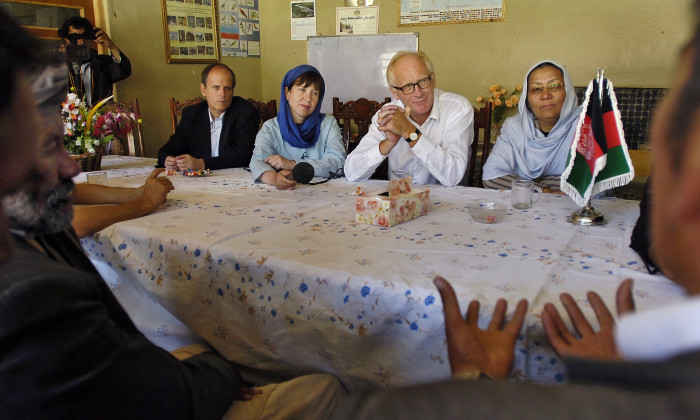Support to Political Processes
A main purpose of peace operations is to support a political peace process– no matter if the operations are civilian, police or military by nature, or if they are primarily an observation, a stabilization or capacity building mission.
Peace operations are usually mandated once conflict parties have already agreed on a ceasefire agreement. Therefore, they support political activities conducive to its implementation, so as to transform the ceasefire into a sustainable peace.
UN Special Political Missions often provide “good offices” for such processes. They engage in diplomatic activities, using the UN’s convening powers to bring conflict parties together with a view to resolving their conflict. The civilian mission in Somalia (UNSOM), for example, supports an inclusive dialogue between the Federal Government of Somalia and lower level federal authorities.
Promoting political processes is one of the essential tasks of peace operations. Examples:
- UNITAMS in Sudan
- EUMM Georgia
 © Eric Kanalstein
© Eric Kanalstein
Classical UN peacekeeping missions (a.k.a. ‘blue helmets’) are also often tasked to promote the political process. Until its closure at the end of 2023, the UN mission in Mali (MINUSMA), for example, supported a national dialogue for reconciliation and the implementation of the 2015 peace agreement between the Government and non-state actors. Most multidimensional UN peace operations have dedicated Civil Affairs Officers who facilitate dialogue and reconciliation processes at the local level.
Confidence building measures are another important aspect of peace processes. They include the supervision of ceasefire agreements through monitoring missions (>Monitoring and Verification). The EU Monitoring Missions in Georgia (EUMM Georgia) and Armenia (EUMA) also aim to build confidence between the conflict parties by supporting contacts between them.
As of 29.08.2025